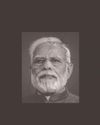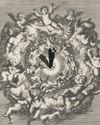
Leonard Cohen never liked touring. "It's like being dropped off in a desert," he once said. "You don't know where you live anymore." By the time he hit his late 50s, he hated it so much that, after supporting his 1992 record, The Future, he moved into a Zen monastery and all but retired from the music business. Even after he returned with More Best of Leonard Cohen (1997), a wonderful celebration of his mid-career prime, he refused to cash in with a fresh calendar of live shows. Then, in 2005, he discovered that his bank account had been nearly emptied by his business manager.
Cohen spent months in rehearsal with a band, fine-tuning his songs as he now wanted to play them more quietly, more elegantly than ever. In 2008, at 73, he went back out on the road. Other than at a book signing, he hadn't performed live in more than a decade. But something had happened in the interim.
His audience was larger-lines curving around blocks, scalpers demanding hundreds above face value.
More striking, though, was the depth of feeling. Leonard Cohen, master of a cool, ironic, deadpan remove, had come to signify something new that mystified the performers themselves. "I saw people in front of the stage shaking and crying," a backup singer noted after opening night. "You don't often see adults cry, and with such violence." The highlight of the tour came at the Glastonbury Festival, where Cohen played the main stage in front of listeners young and old. As the sun set and Cohen sang "Hallelujah," concertgoers "sang along, clutching each other's arms," an Australian journalist reported, "and many were openly weeping." Cohen hadn't been dropped off in a desert.
How to account for such emotion, felt across generational divides? Where does the widely perceived authenticity-hardly an untroubled term-of this music come from? And why has its power to move listeners sustained itself so forcefully, turning Cohen's afterlife into one long canonization?
This story is from the {{IssueName}} edition of {{MagazineName}}.
Start your 7-day Magzter GOLD free trial to access thousands of curated premium stories, and 9,000+ magazines and newspapers.
Already a subscriber ? Sign In
This story is from the {{IssueName}} edition of {{MagazineName}}.
Start your 7-day Magzter GOLD free trial to access thousands of curated premium stories, and 9,000+ magazines and newspapers.
Already a subscriber? Sign In

Apocalypse, Constantly
Humans love to imagine their own demise.

A Palestinian American Sex and the City
Betty Shamieh's debut novel is a rebellious rom-com.

Modi's Failure
Why India is losing faith in its strongman leader

The Anti-Social Century
Americans are now spending more time alone than ever. It's changing our personalities, our politics, and even our relationship to reality.

The Wild Charity of Saint Francis
The guide we need, now that kindness is countercultural

Where Han Kang's Nightmares Come From
In her novels, the South Korean Nobel laureate returns again and again to her countrys bloody past.

TROPHY HUNTERS
A GROUP OF CHILDHOOD FRIENDS PULLED OFF A STRING OF THE MOST AUDACIOUS SPORTS-MEMORABILIA HEISTS IN AMERICAN HISTORY. THEN THEY DID SOMETHING REALLY CRAZY.

THE NEW RASPUTINS
Anti-science mysticism is enabling autocracy around the globe.

ARMY OF GOD
AMERICAN CHRISTIANS ARE EMBRACING A CHARISMATIC MOVEMENT KNOWN AS THE NEW APOSTOLIC REFORMATION, WHICH SEEKS TO DESTROY THE SECULAR STATE. Now THEIR WAR BEGINS.

WHAT NOT TO WEAR
The false promise of seasonal-color analysis